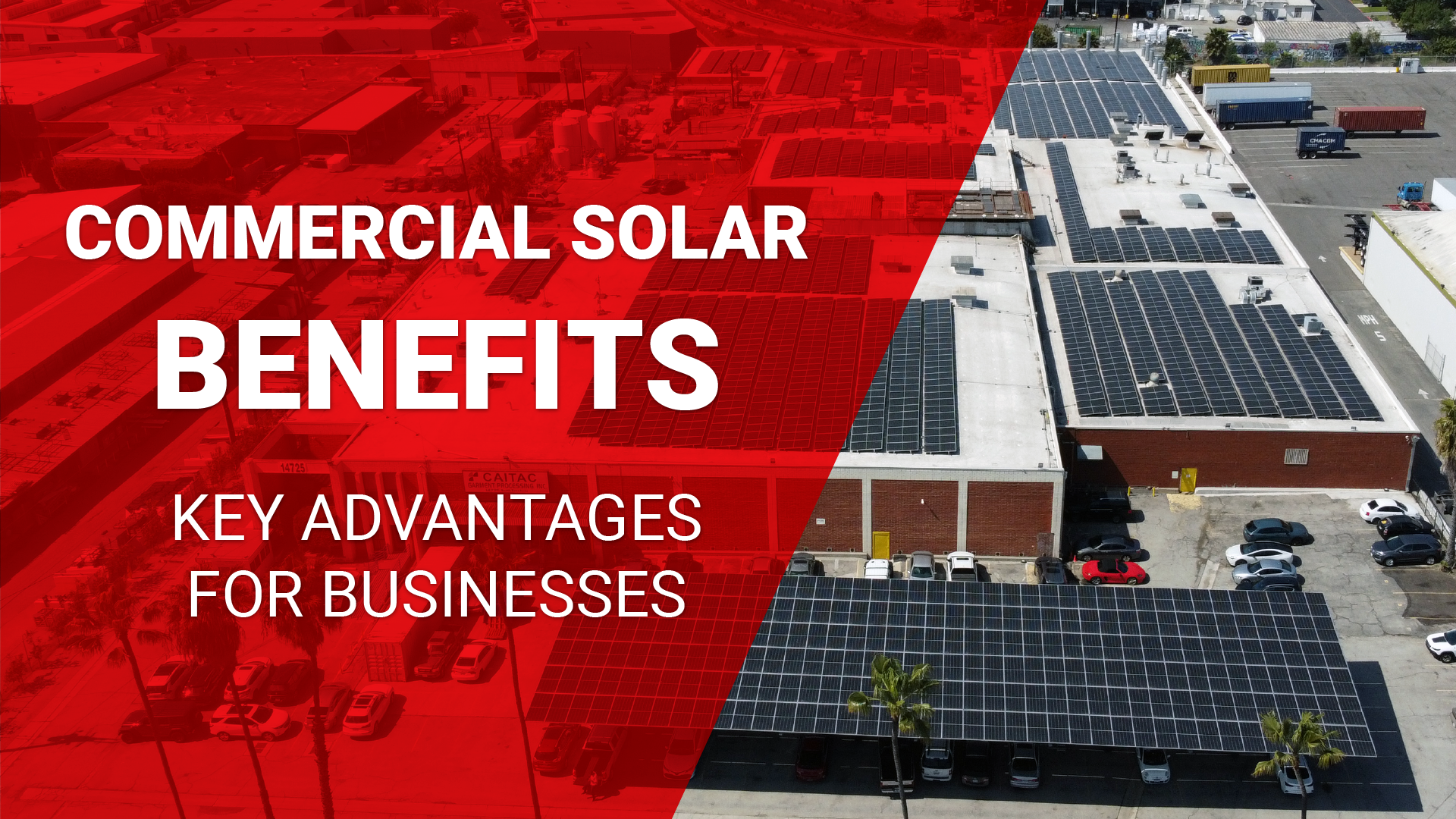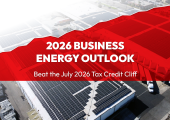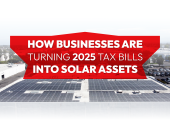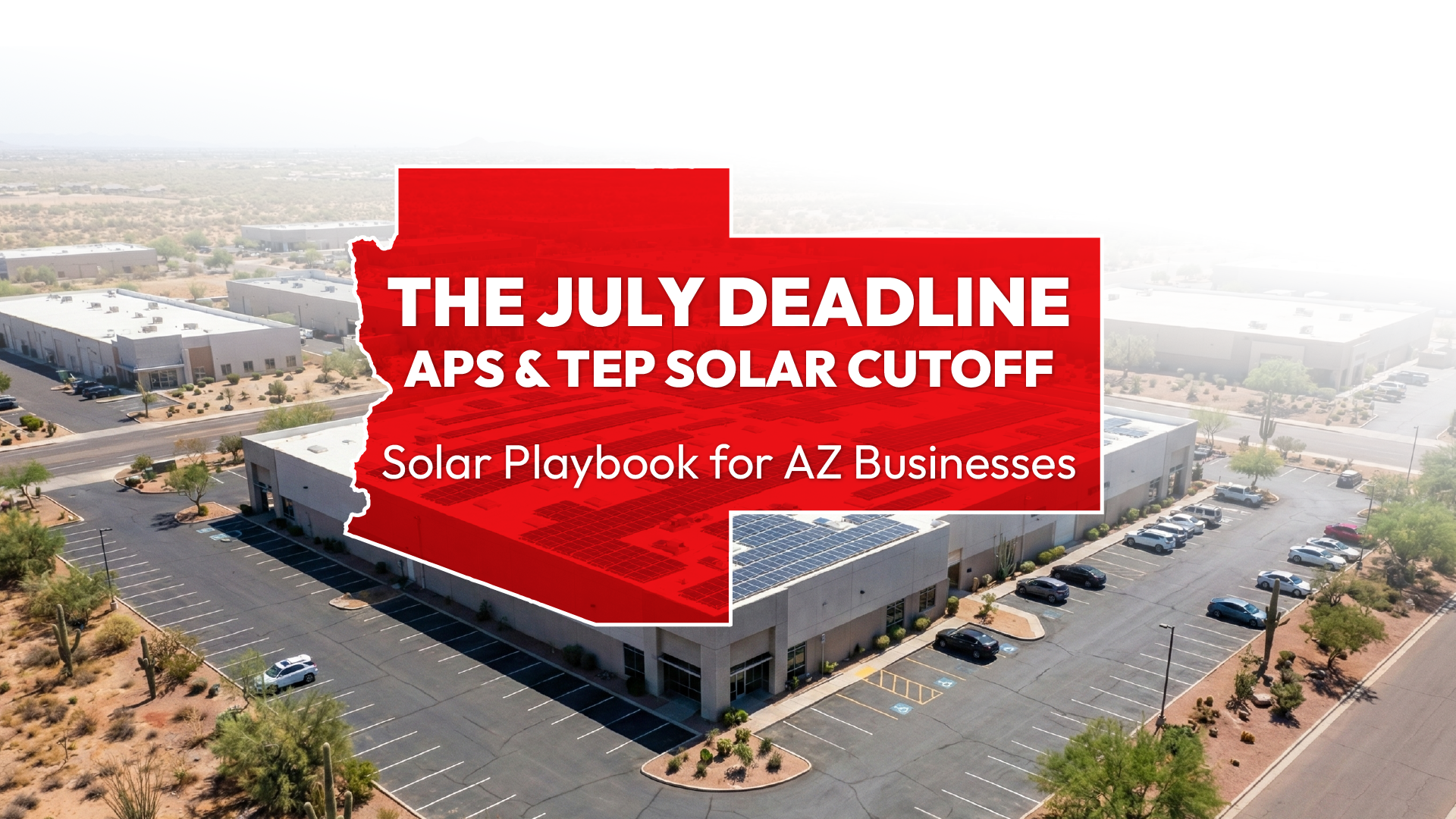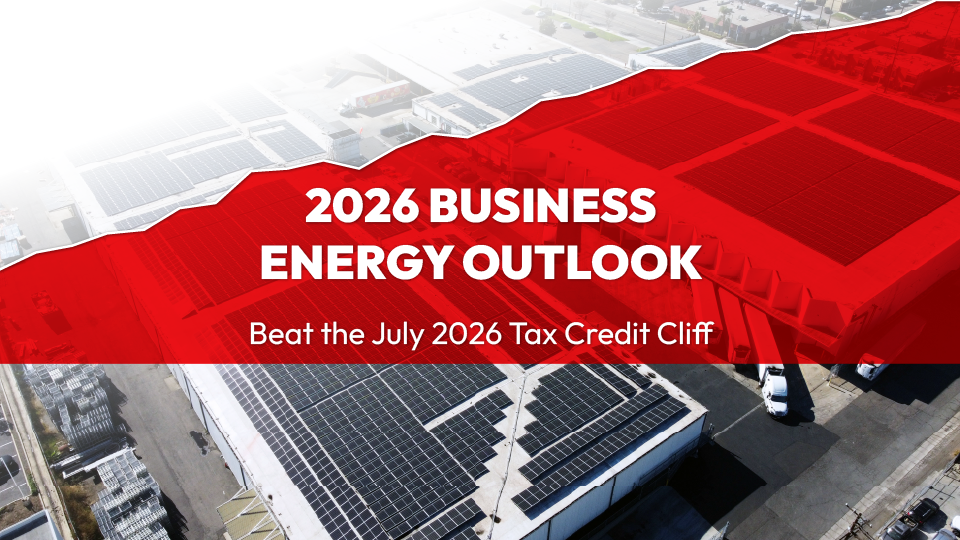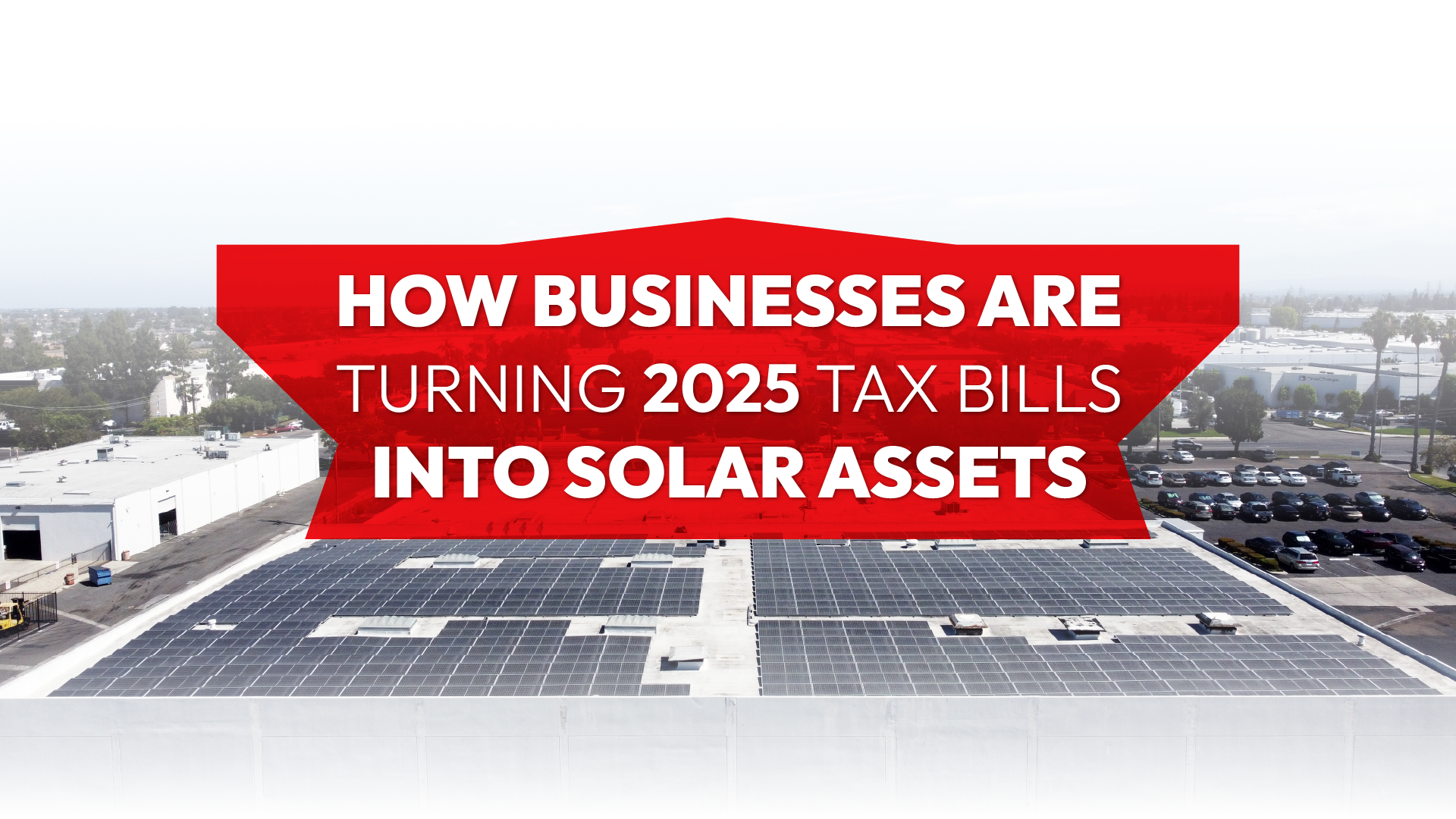Commercial Solar Benefits: Key Advantages for Businesses
As energy prices fluctuate and environmental awareness rises, commercial businesses are increasingly turning to solar energy systems. The benefits of commercial solar go far beyond cost savings—they offer long-term financial advantages, environmental benefits, and a path to sustainable business practices that resonate with modern consumers.
Whether you own a commercial building, run agricultural operations, or manage industrial facilities, investing in commercial solar systems offers a compelling opportunity to lower your electricity costs, increase energy independence, and elevate your public image. In this article, we’ll explore the wide-ranging benefits of commercial solar, helping you understand how solar energy systems can transform your business operations, support strategic growth, and position your brand as a forward-thinking leader in sustainability.
Why Commercial Solar Matters Now More Than Ever
The shift toward renewable energy is no longer just a trend—it’s a necessity.
Rising electricity costs, increasing volatility in the fossil fuel market, and mounting pressure from stakeholders to embrace environmental sustainability are compelling businesses across sectors to take action. At the same time, federal and state solar incentives, including the Investment Tax Credit (ITC) and bonus depreciation, have made the economics of going solar more attractive than ever. For example, the ITC allows businesses to deduct 30% of their total solar installation costs from federal taxes.
Modern solar energy technology has evolved significantly. Photovoltaic conversion efficiency now averages 21%, with ongoing research pushing limits even higher. Additionally, battery storage systems are becoming more durable and cost-effective, enabling businesses to store excess energy for later use.
At the intersection of cost efficiency, climate responsibility, and energy resilience, commercial solar systems stand out as one of the most impactful investments a business can make today.
In the following sections, we’ll dive deep into the key benefits, financial advantages, and operational improvements that make solar energy a smart and strategic move for commercial businesses of all sizes.
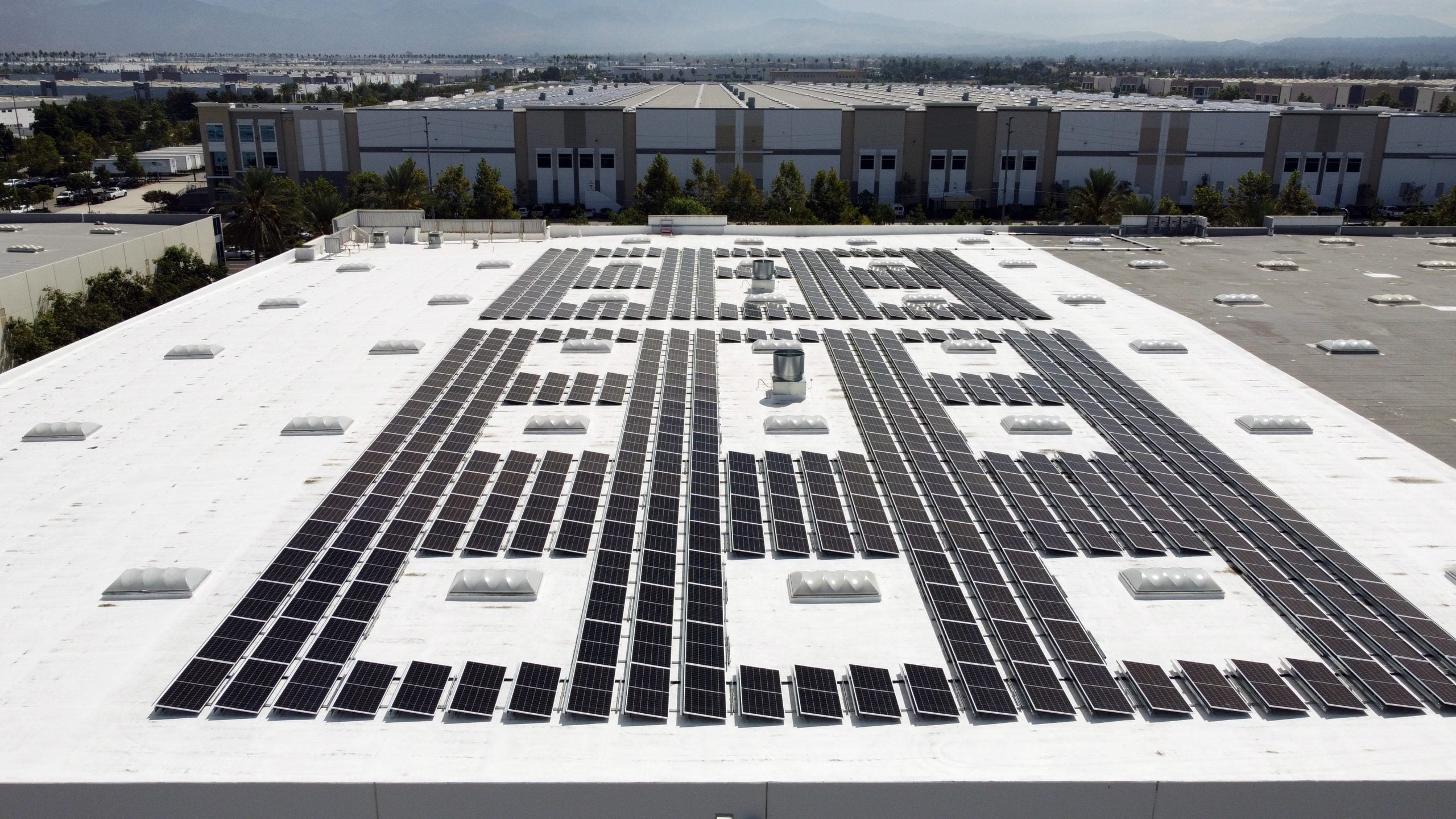
1. Substantial Reduction in Electricity Costs
One of the most immediate and noticeable benefits of commercial solar is the reduction in electricity costs. Businesses typically consume large amounts of electricity daily, whether it’s powering HVAC systems, machinery, lighting, or IT infrastructure. With solar panel installations, companies can offset a significant portion of their energy consumption by generating their own solar electricity.
Key cost-saving advantages:
- Lock in long-term electricity rates and avoid utility price hikes
- Lower electric bills through self-produced solar energy production
- Decrease dependency on the unpredictable electricity market
- Significantly reduce operating expenses year over year
For instance, renewable power has become increasingly affordable. According to IRENA (International Renewable Energy Agency), nearly two-thirds of renewable power added globally in 2021 had costs lower than the cheapest coal-fired options in G20 countries. Businesses adopting solar often recover their initial investment within 3–7 years.
2. High Return on Investment (ROI) and Financial Advantages
Contrary to the misconception that solar is too expensive, commercial solar systems are one of the best investments a business can make. The initial upfront costs of a solar panel project are increasingly offset by a combination of financial incentives, government incentives, and long-term energy savings.
Why the ROI is compelling:
- Businesses typically break even on solar installations within 3 to 7 years
- Ongoing annual savings from reduced electricity bills
- Solar tax credit and accelerated depreciation programs drastically cut the initial investment
- Ownership of the system delivers decades of financial returns and cost savings
Additionally, bonus depreciation under the IRS Modified Accelerated Cost Recovery System (MACRS) allows for a faster deduction of the asset’s cost, improving cash flow and reducing federal income tax liability.
3. Solar Incentives and Tax Benefits for Commercial Properties
A wide range of solar incentives exists to encourage the adoption of clean energy across commercial projects. These financial benefits make solar conversion even more attractive.
Key available incentives:
- Investment Tax Credit (ITC): Allows businesses to deduct up to 30% of the total solar installation costs
- Bonus depreciation: Immediate deduction of a large portion of the solar investment
- Production Tax Credits (PTCs): Offered in some regions for ongoing energy production
- State-level and local tax benefits
- Grants or rebates from the federal government or utility companies
Together, these incentives offer additional tax savings and help improve the financial advantage of installing commercial solar systems.
4. Energy Independence and Greater Reliability
Businesses are increasingly seeking energy independence as a hedge against power outages, energy market volatility, and dependency on traditional energy sources.
Solar systems offer:
- Onsite power generation with battery storage integration for backup during outages
- Flexibility to reduce grid reliance during peak hours
- Support for hybrid energy systems, combining solar panels with other renewable energy sources
These features make solar energy systems especially beneficial for mission-critical operations and facilities that cannot afford downtime.
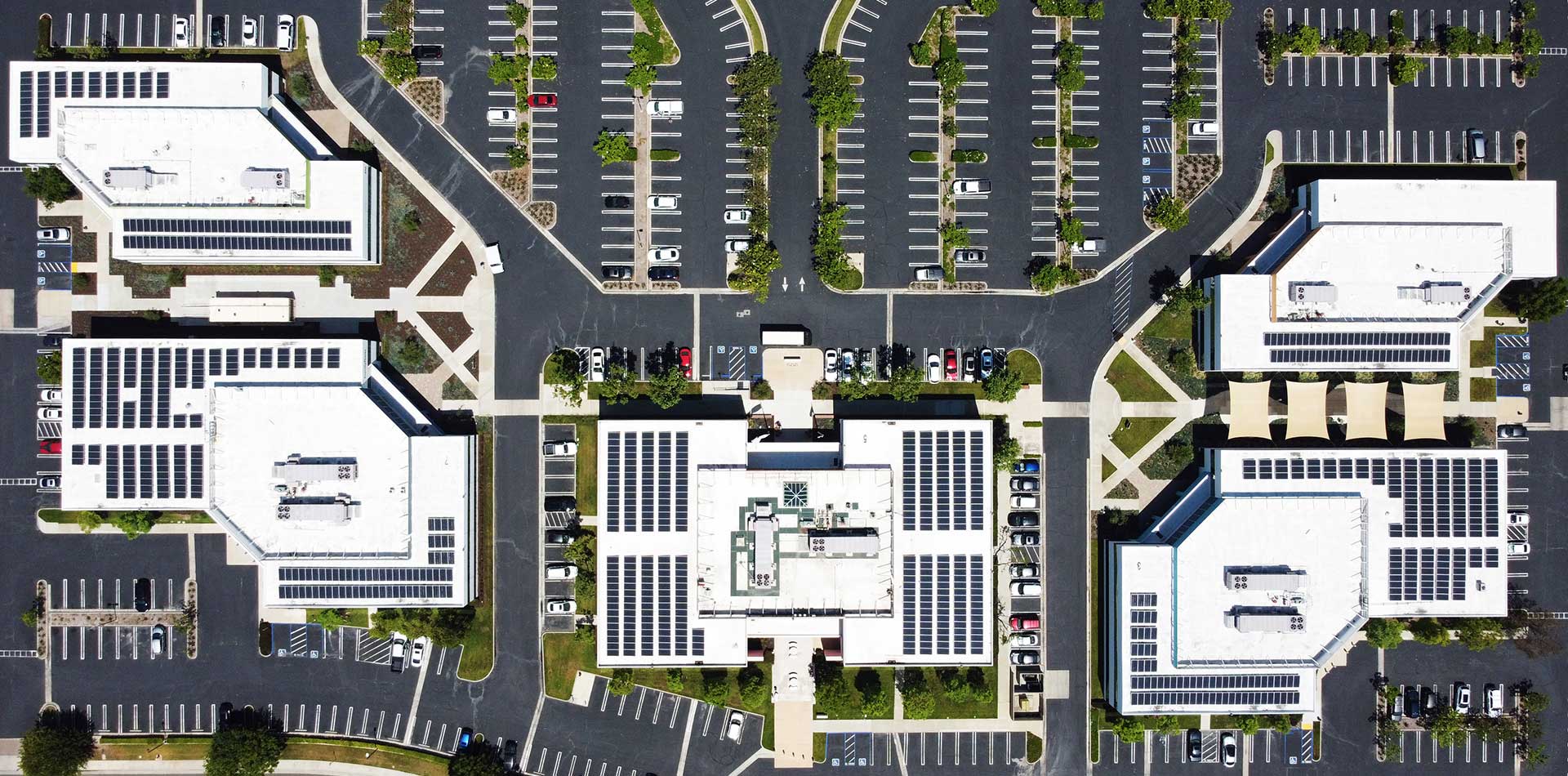
5. Environmental Benefits and Reduced Carbon Footprint
Installing commercial solar panels demonstrates a company’s commitment to sustainability by significantly reducing carbon emissions. Power plants burning fossil fuels account for over 40% of global CO2 emissions, and switching to solar eliminates these emissions entirely for electricity production.
Environmental advantages include:
- Significant reduction in carbon emissions
- Less reliance on fossil fuel consumption
- Support for broader community sustainability goals
- Promoting a greener future for future generations
More consumers are seeking to engage with brands that prioritize environmental goals and renewable sources, making this a major reputational and operational benefit.
6. Enhanced Brand Image and Reputational Benefits
Companies that adopt solar panel systems are often perceived as innovators and environmental leaders. This shift can lead to better brand perception and even increased revenue.
Branding benefits of commercial solar:
- Strengthen your public image and align with eco-conscious customers
- Driving positive media attention through sustainable practices
- Attracting environmentally-minded talent while boosting employee morale
Consumers and stakeholders increasingly expect companies to take meaningful steps toward sustainability, and solar adoption is a tangible way to meet that expectation.
7. Scalable Solar Solutions for Businesses of All Sizes
Whether you operate a shopping mall, warehouse, agricultural operation, or industrial plant, solar solutions can be tailored to your energy needs and property characteristics.
Scalable for:
- Small and medium-sized businesses
- Large-scale commercial properties
- Sites with flat roofs, open land, or carport space
- Facilities with high annual consumption of kWh
Solar companies now offer end-to-end services, including engineering, procurement, installation, and maintenance, making the transition seamless.
8. Flexible Financing and Solar Project Options
You don’t have to purchase your solar panel systems outright to enjoy the benefits. Many solar providers offer power purchase agreements (PPAs), leases, or shared ownership models.
Financing options include:
- Zero- or low-down-payment PPAs with predictable electricity costs
- Equipment leases with optional ownership
- Capital expenditure with full access to all tax incentives
- Green bonds or sustainability-linked loans
These options ensure that commercial businesses of all types can access solar electricity without overextending resources.
The Time to Invest in Commercial Solar is Now
The landscape of commercial energy is changing—and fast. Rising energy costs, greater demand for sustainable business practices, and increasing pressure from regulators, investors, and consumers are driving companies toward smarter, greener solutions. At the same time, the cost of solar installation has declined significantly, while generous government incentives, including the federal solar tax credit, bonus depreciation, and state-level financial incentives, make it easier than ever for business owners to take advantage of clean energy.
By transitioning to commercial solar systems, businesses gain much more than utility savings. They establish a foundation for energy independence, strengthen their public image, and position themselves for long-term success in a carbon-conscious economy. With the added benefits of resilience, predictable operating expenses, and a meaningful reduction in your organization’s carbon footprint, commercial solar is not just a smart financial decision—it’s a strategic one.
Whether your facility has a flat roof, high electricity consumption, or ambitious environmental goals, solar panel installations can be tailored to fit your needs. Thanks to advances in solar energy technology, scalable system designs, and a variety of financing options—including power purchase agreements (PPAs) and battery storage systems—solar has never been more accessible or impactful.
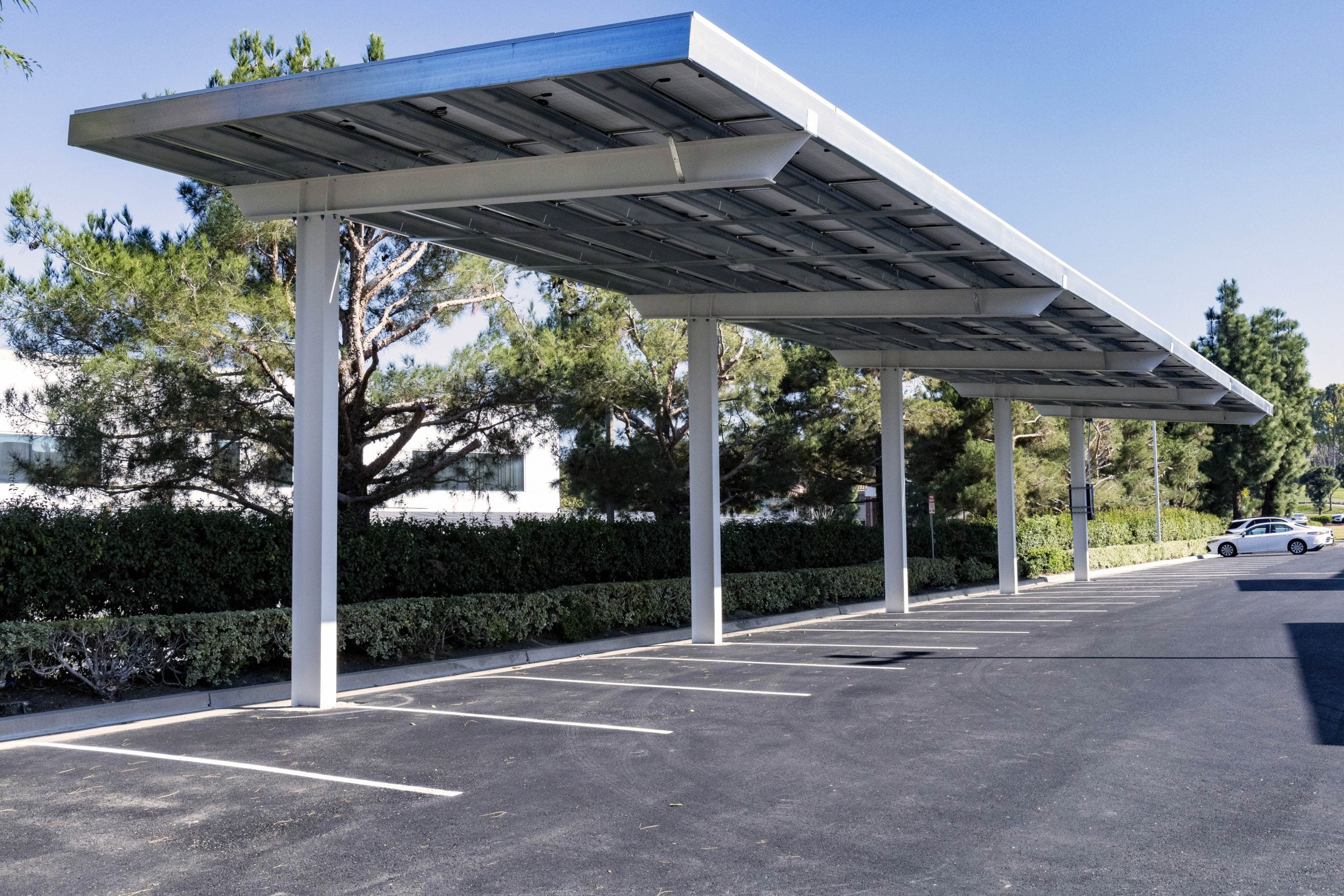
Let Revel Energy Help You Transition to Clean Energy
At Revel Energy, we specialize in designing and deploying solar solutions for commercial, industrial, and agricultural operations across the U.S. Our end-to-end approach—from feasibility studies and engineering to installation and monitoring—ensures you receive a custom-built system that maximizes energy savings and delivers the financial return your business expects.
We work closely with clients to:
- Optimize system size based on actual consumption and business size
- Navigate all available government incentives, solar tax credits, and additional tax savings
- Reduce federal income tax liability with tools like accelerated depreciation
- Improve your facility’s green brand image and appeal to eco-conscious customers
- Strengthen your operations against grid outages with solar batteries and energy storage technology
Don’t wait for electricity prices to rise or sustainability mandates to tighten. Take control of your energy production, reduce your electric bills, and future-proof your operations with a commercial solar solution built to last.
Contact Revel Energy today for a complimentary consultation and discover how we can help your organization harness the benefits of commercial solar and lead the way toward a more sustainable future.
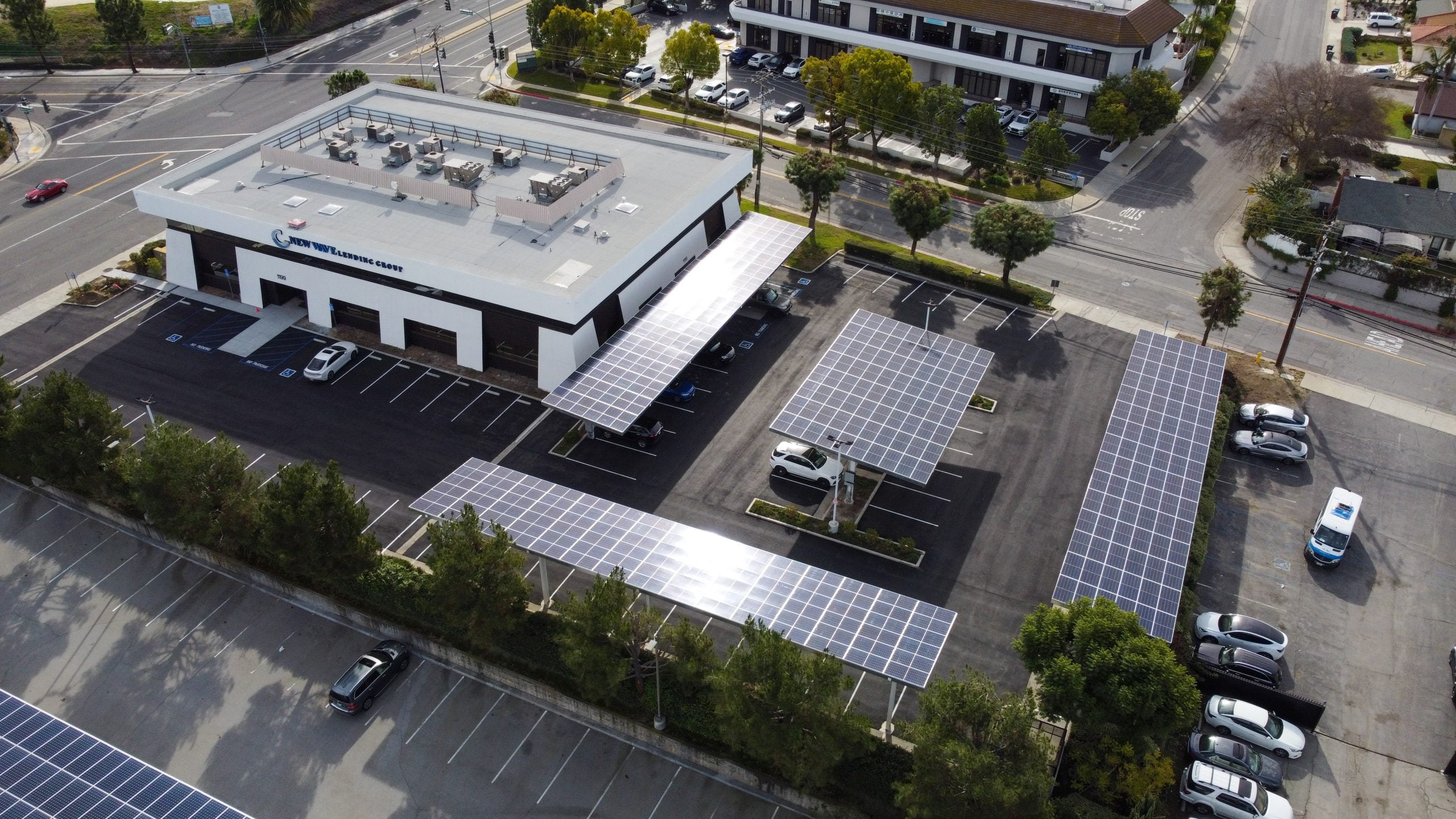
Frequently Asked Questions (FAQ)
Commercial solar offers a wide range of benefits including lower electricity bills, reduced operating expenses, and attractive financial returns. In addition to direct cost savings, solar systems support sustainability goals, enhance your brand reputation, and reduce your business’s carbon footprint, making them a powerful tool for both profitability and corporate responsibility.
The average cost of a commercial solar installation depends on factors like system size, energy needs, location, and roof conditions. However, with the help of the federal tax credit, bonus depreciation, and other solar incentives, the initial investment can be significantly reduced, often with a payback period of just a few years.
Most businesses achieve full ROI within 3 to 7 years, depending on system size, financing structure, and local utility rates. Beyond that, commercial solar systems continue to generate energy savings and financial advantages for 25 years or more, delivering long-term value and increased energy predictability.
Businesses can take advantage of multiple incentives such as the Investment Tax Credit (ITC), accelerated depreciation (via MACRS), and production tax credits in certain regions. These tax benefits, combined with state and local government incentives, make commercial solar one of the most financially advantageous energy upgrades available.
A PPA is a financial arrangement where a third-party solar provider installs, owns, and maintains the solar system on your property, and you agree to purchase the solar electricity it generates—usually at a lower rate than utility power. This allows you to access clean energy with minimal to no upfront costs, while still benefiting from long-term cost savings.
Investing in solar highlights your commitment to environmental sustainability, which strengthens your public image, builds trust with eco-conscious customers, and differentiates your brand in a crowded market. It can also drive positive media attention and boost your appeal to investors, partners, and top-tier talent.
Commercial grade rooftop solar is ideal for: manufacturing, warehousing, logistics, industrial, retail, hospitality buildings and more with over 10,000 sq. ft. rooftops.
CARPORT SOLAR
Free standing carport solar generates added solar power for properties with limited rooftop space. Added benefits include shading and protection for employees vehicles.
Crucial for reducing peak demand charges. Automated to supply electricity when your panels won’t. Energy storage is ideal for businesses that incur significant peak charges.
As the popularity of electric vehicles increase, so does the demand for on-site charging. This sustainable amenity has become a parking lot fixture for competitive employers.
OUR SERVICES
TURNKEY COMMERCIAL GRADE SOLAR, ENERGY STORAGE, LED LIGHTING AND MORE.
PROFESSIONAL GUIDANCE
CUSTOM TAILORED PLANNING
CONSTRUCTION & INSTALLATION
CSLB #1106092
Client Testimonial: Kelemen Company
Corporate Business Park in Irvine, CA has created significant electricity cost savings through commercial solar installed across the 5-building business park.
Client Testimonial: Tice Gardner & Fujimoto LLP
See how this CPA firm saved on electricity and gained valuable tax credits through commercial solar that they used to keep cash in the businesses.

